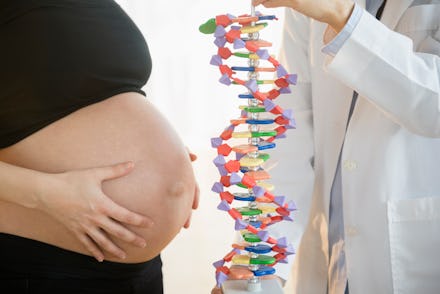Here's How Scientists Would Gene Edit Human Embryos

Today could be the day that changes human gene editing forever.
The Human Fertilization and Embryology Authority will decide Thursday whether Kathy Niakan from the Francis Crick Institute, a biomedical research facility, will become the first British researcher to use CRISPR/Cas9 to modify a human embryo.
CRISPR is a technique that gives scientists the ability to directly modify or correct changes in our genome by "cutting" the genes with a protein called Cas9. So far, human gene editing has been taboo: One Chinese lab faced backlash over the ethical issues of editing such a complex organism. Since edits to embryos are heritable, we'd have no idea how the changes today would change the subject's bloodline in the future.
Niakan's plan is the first baby step — literally. She aims to investigate the earliest stages after fertilization, when the fertilized egg is still a singular cell and hasn't begun the process of multiplying. She wants to examine the genes and see how they play roles in infertility, miscarriages and other developmental disorders that rear their ugly genetic heads in the stages between fertilization and birth.
At a press conference Wednesday, Niakan proposed using CRISPR to knock out a "master gene" called OCT4, which is a key player in building pluripotent stem cells — cells with multiple biological responses and outcomes — which can become pretty much any kind of cell tissue.
The embryos Niakan wants to study come from leftover fertilization attempts at in vitro fertilization clinics. Current legislation in the U.K. says researchers can run studies on human embryos as long as those embryos won't be implanted. These regulations mean Niakan will be working mostly with petri dishes, not creating genetically modified babies.
But, as Niakan told the BBC, "We believe that this research could really lead to improvements in infertility treatment and ultimately provide us with a deeper understanding of the earliest stages of human life."
No, we can't have superbabies yet. But considering the rate of miscarriage of clinical pregnancies is about 12% to 15%, research just to help babies reach life is an amazing way to start.